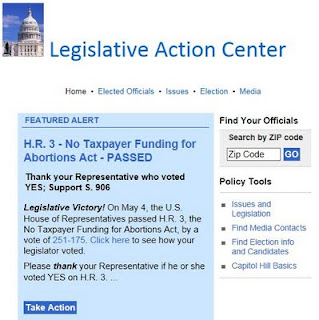Even those with no moral objection to assisted suicide and its close cousin, euthanasia, should follow the trail of tragedy when these concepts are actually implemented in countries like the Netherlands and Belgium and in states like Oregon and Washington. An incisive article by J. Pereira, MBChB MSc published in Current Oncology, entitled, "Legalizing euthanasia or assisted suicide: the illusion of safeguards and controls," reveals the impotence of supposed legal safeguards and traces the deadly path of medical killing run amok.
The medical journal article finds that:
Patients are being put to death without consent:
· "Despite … safeguards, more than 500 people in the Netherlands are euthanized involuntarily every year."
· "In Belgium, the rate of involuntary and non-voluntary euthanasia deaths (that is, without explicit consent) is 3 times higher than it is in the Netherlands."
· "The United Nations has found that the euthanasia law in the Netherlands is in violation of its Universal Declaration of Human Rights because of the risk it poses to the rights of safety and integrity for every person’s life."
Doctors are hiding euthanasia from authorities
· "In Belgium, nearly half of all cases of euthanasia are not reported…"
· "In the Netherlands, at least 20% of cases of euthanasia go unreported."
Consultation requirement is being filled by biased doctors
· "In Oregon, a physician member of a pro-assisted-suicide lobby group provided the [required] consultation in 58 of 61 consecutive cases of patients receiving PAS [physician-assisted suicide]."
Depressed patients are dying without help
· "A recent Oregon-based study demonstrated that some depressed patients are slipping through the cracks. Among terminally ill patients who received a prescription for a lethal drug, 1 in 6 had clinical depression."
The social slippery slope is expanding medical killing without limit
· "Until 2001, the Netherlands allowed only adults access to euthanasia or PAS. However, the 2001 law allowed for children aged 12–16 years to be euthanized if consent is provided by their parents, even though this age group is generally not considered capable of making such decisions. The law even allows physicians to proceed with euthanasia if there is disagreement between the parents.
· "By 2005, the Groningen Protocol, which allows euthanasia of newborns and younger children who are expected to have “no hope of a good quality of life,” was implemented."
· "By 2006, the Royal Dutch Medical Association had declared that 'being over the age of 70 and tired of living' should be an acceptable reason for requesting euthanasia."
· "Denying euthanasia or PAS in the Netherlands is now considered a form of discrimination against people with chronic illness, whether the illness be physical or psychological…"
Palliative (comfort) care is giving way to cost-efficient medical killing
· "There is evidence that attracting doctors to train in and provide palliative care [in the Netherlands] was made more difficult because of access to euthanasia and PAS, perceived by some to present easier solutions, because providing palliative care requires competencies and emotional and time commitments on the part of the clinician
· "[In Belgium,] the rates of palliative care involvement have been decreasing. In 2002, palliative care teams were consulted in 19% of euthanasia cases, but by 2007 such involvement had declined to 9% of cases. That finding contradicts claims that in Belgium, legalization has been accompanied by significant improvements in palliative care in the country."
· "At the United Kingdom’s parliamentary hearings on euthanasia a few years ago, one Dutch physician asserted that “We don’t need palliative medicine, we practice euthanasia.”
· Euthanasia and assisted suicide are carried out in the name of compassion despite the fact that proven medical "strategies are available to begin to address severe refractory symptoms, to treat depression, and to deal with the fear that some people have of what the future with a terminal disease may hold."











